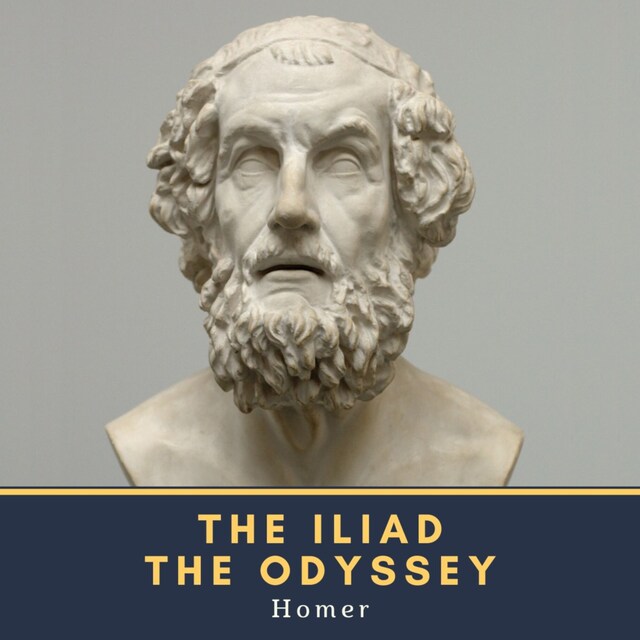
The Iliad & The Odyssey
Om bogen
The Iliad (Ancient Greek: Ἰλιάς
Iliás; sometimes referred to as the
Song of Ilion or
Song of Ilium) is an ancient Greek epic poem in dactylic hexameter, traditionally attributed to Homer. Set during the Trojan War, the ten-year siege of the city of Troy (Ilium) by a coalition of Greek states, it tells of the battles and events during the weeks of a quarrel between King Agamemnon and the warrior Achilles. Although the story covers only a few weeks in the final year of the war, the Iliad mentions or alludes to many of the Greek legends about the siege; the earlier events, such as the gathering of warriors for the siege, the cause of the war, and related concerns tend to appear near the beginning. Then the epic narrative takes up events prophesied for the future, such as Achilles' imminent death and the fall of Troy, although the narrative ends before these events take place. However, as these events are prefigured and alluded to more and more vividly, when it reaches an end the poem has told a more or less complete tale of the Trojan War.
The Odyssey (Greek: Ὀδύσσεια
Odýsseia) is one of two major ancient Greek epic poems attributed to Homer. It is, in part, a sequel to the
Iliad, the other Homeric epic. The
Odyssey is fundamental to the modern Western canon; it is the second-oldest extant work of Western literature, while the
Iliad is the oldest. Scholars believe the
Odyssey was composed near the end of the 8th century BC, somewhere in Ionia, the Greek coastal region of Anatolia. The poem mainly focuses on the Greek hero Odysseus (known as Ulysses in Roman myths), king of Ithaca, and his journey home after the fall of Troy. It takes Odysseus ten years to reach Ithaca after the ten-year Trojan War. In his absence, it is assumed Odysseus has died, and his wife Penelope and son Telemachus must deal with a group of unruly suitors, the
Mnesteres (Greek: Μνηστῆρες) or Proci, who compete for Penelope's hand in marriage.


